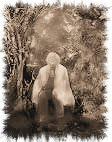Kabir Helminski is a sheikh of the Mevlevi Order, which traces its lineage back to Rumi. He is the translator of many books on Rumi, as well as several collections of Sufi writings. Helminski has toured the world, bringing the music of Sufism and the art of the whirling dervishes of Turkey to people everywhere. He is the author of two books on Sufism: "Living Presence" and "The Knowing Heart," and is the translator of Rumi's poetry collections, including "Jewels of Remembrance," "Rumi the Path of Love," and others.
Helminski talked with Beliefnet's Islam producer, Rhonda Roumani, about Rumi, Sufism, and their connection to Islam.
What is it about Rumi's poetry that has made him so popular in the United States?
The United States is an openly religious country, unlike Europe, where there is a lot more cynicism toward not only religion but even toward spiritual matters. Americans are a naturally openhearted and spiritual people. Our spiritual history--the Euro-Christian legacy--has been a legacy in which the direction of our humanness and the direction of religion seem to be pointing in opposite directions.
And Rumi brings it back together by showing us that the way to God is through our humanness, through our brokenness. And only God dissolves our shame and helps us to know that we, God's creation, are profoundly loved.
Islam makes every aspect of human life sacred. Whereas there are other kinds of religious understanding which suggest that the way to God is through the denial of our humanness and the overcoming of our humanness. The Islamic way is much more that we have an inherently good nature. We're not born with original sin. Muhammad (PBUH) showed a way to incorporate the highest spiritual attainment into a very human life. And this is frankly a pretty radical and new concept within the Euro-Christian tradition, where people have denied themselves and gone to monasteries and lived with the burden of sin.
Rumi speaks to this sense that we have of our own human limitations, our own human unworthiness, and he convinces us that we are loved by God. Through the embrace of our pain, a spiritual door opens if we embrace that pain in the remembrance of God.
So, Rumi is the voice of this unconditional love. He is willing to talk about his own pain, for instance--the pain of loving God, the pain of being human. He is honest. He touches our wound. He demonstrates how a human being can be the intimate friend of God.
Rumi was a Sufi. What is Sufism, and how is it connected to Islam?
Sufism is made up of several branches. We have no serious doctrinal differences between these branches, nor is one branch in competition with another.
Sufism comes from tassawuf, which means purification of the human heart without which we cannot know God. As the Qur'an says, "Indeed in the remembrance of God hearts find peace." The end of the training process of Sufism is the spiritually mature human being.
But we should understand that in every religious tradition, there are different levels. One level is the common practice of religion that they are typically born into. Within a religious tradition, there is also "the path" or "the way." The word for this in Islam is "tariqa." Tariqa is a conscious choice that a person makes to go beyond belief to "experience." It is different than nominally belonging to a religion. In Islam, there are many tariqas. Someone who walks the path of tariqa is a Sufi.
In Islam, there is the level of Shari'ah, or religious law. The Shari'ah governs our outer actions and behaviors. Sufism has more to do with the inner understanding of those outer practices and the quality of consciousness that we bring to those practices through the development of our inner spiritual capacity, particularly through consciousness and love. This development of one's spiritual capacity is much more possible through a relationship with someone who has made this spiritual journey and can help to guide us and help us avoid the pitfalls of the journey. This person is called a "sheikh," a "guide," a "teacher," or sometimes just a "spiritual friend."
Helminski talked with Beliefnet's Islam producer, Rhonda Roumani, about Rumi, Sufism, and their connection to Islam.
What is it about Rumi's poetry that has made him so popular in the United States?
The United States is an openly religious country, unlike Europe, where there is a lot more cynicism toward not only religion but even toward spiritual matters. Americans are a naturally openhearted and spiritual people. Our spiritual history--the Euro-Christian legacy--has been a legacy in which the direction of our humanness and the direction of religion seem to be pointing in opposite directions.
And Rumi brings it back together by showing us that the way to God is through our humanness, through our brokenness. And only God dissolves our shame and helps us to know that we, God's creation, are profoundly loved.
Islam makes every aspect of human life sacred. Whereas there are other kinds of religious understanding which suggest that the way to God is through the denial of our humanness and the overcoming of our humanness. The Islamic way is much more that we have an inherently good nature. We're not born with original sin. Muhammad (PBUH) showed a way to incorporate the highest spiritual attainment into a very human life. And this is frankly a pretty radical and new concept within the Euro-Christian tradition, where people have denied themselves and gone to monasteries and lived with the burden of sin.
Rumi speaks to this sense that we have of our own human limitations, our own human unworthiness, and he convinces us that we are loved by God. Through the embrace of our pain, a spiritual door opens if we embrace that pain in the remembrance of God.
So, Rumi is the voice of this unconditional love. He is willing to talk about his own pain, for instance--the pain of loving God, the pain of being human. He is honest. He touches our wound. He demonstrates how a human being can be the intimate friend of God.
Rumi was a Sufi. What is Sufism, and how is it connected to Islam?
Sufism is made up of several branches. We have no serious doctrinal differences between these branches, nor is one branch in competition with another.
Sufism comes from tassawuf, which means purification of the human heart without which we cannot know God. As the Qur'an says, "Indeed in the remembrance of God hearts find peace." The end of the training process of Sufism is the spiritually mature human being.
But we should understand that in every religious tradition, there are different levels. One level is the common practice of religion that they are typically born into. Within a religious tradition, there is also "the path" or "the way." The word for this in Islam is "tariqa." Tariqa is a conscious choice that a person makes to go beyond belief to "experience." It is different than nominally belonging to a religion. In Islam, there are many tariqas. Someone who walks the path of tariqa is a Sufi.
In Islam, there is the level of Shari'ah, or religious law. The Shari'ah governs our outer actions and behaviors. Sufism has more to do with the inner understanding of those outer practices and the quality of consciousness that we bring to those practices through the development of our inner spiritual capacity, particularly through consciousness and love. This development of one's spiritual capacity is much more possible through a relationship with someone who has made this spiritual journey and can help to guide us and help us avoid the pitfalls of the journey. This person is called a "sheikh," a "guide," a "teacher," or sometimes just a "spiritual friend."
Dear Readers, please do not assume that you understand anything you read on this blog.


.jpg)

.jpg)
.jpg)


